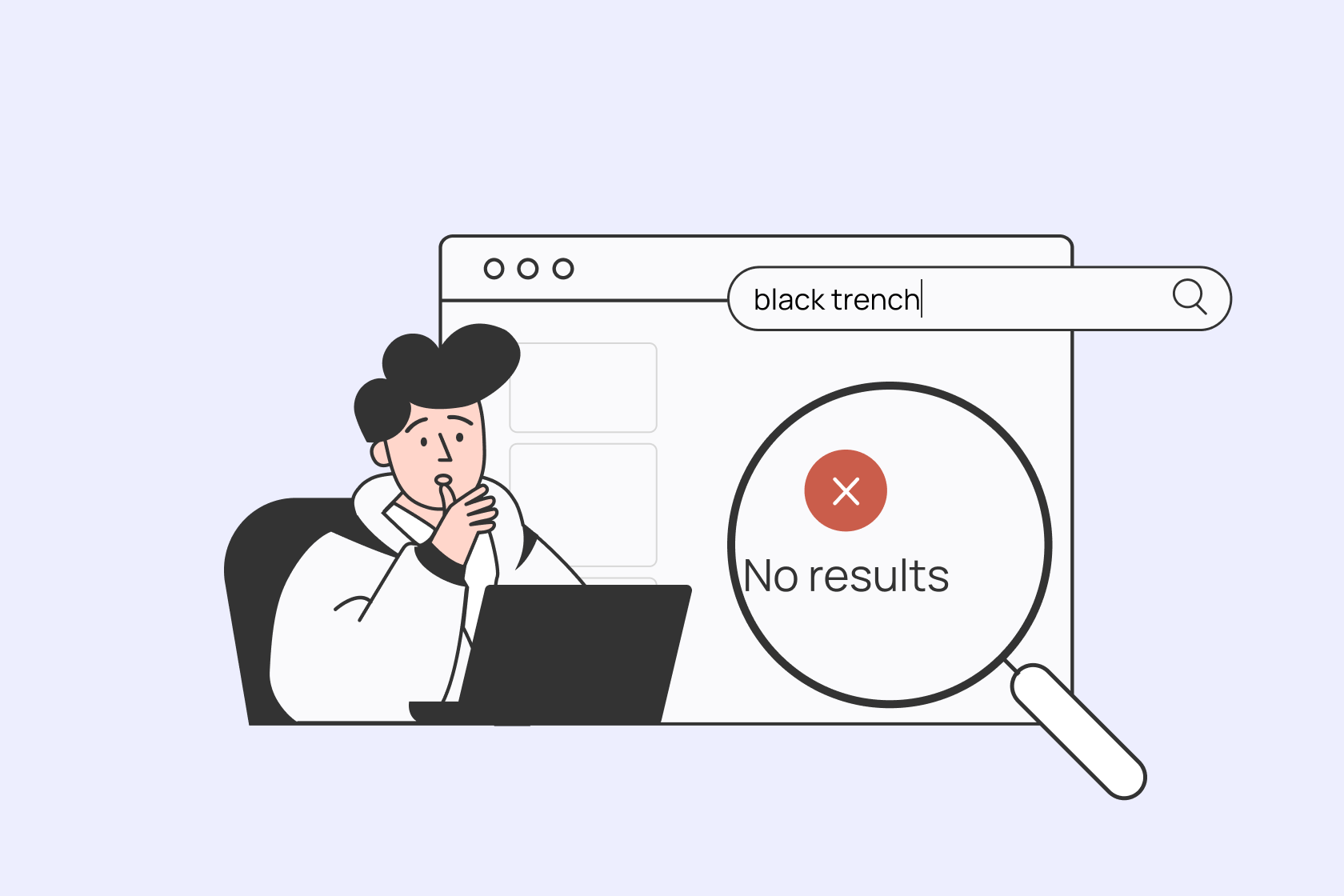Introduction – Why “No Results Found” Hurts Your Business
Imagine a customer walks into your store, asks for a product, and you simply say, “We don’t have it,” without offering alternatives. That is exactly what happens when your ecommerce site displays “No Results Found.”
Not only does it frustrate visitors, but it also increases bounce rates, lowers conversions, and damages your SEO.
If they can’t find what they want instantly, they will abandon your site—often without ever returning.
The Customer Experience Problem
A poor search experience pushes shoppers away. In ecommerce, speed matters—if customers don’t find what they want within seconds, they will likely head to a competitor.
How Search Errors Affect Bounce Rate & Conversions
When users land on an empty search page, they’re more likely to leave immediately.
This increases your bounce rate, reduces time on site, and signals to search engines that your website may not be meeting user needs. Over time, this can lower your rankings in search results, which means fewer people even get the chance to visit your store.
Understanding the “No Results Found” Problem in Ecommerce
The dreaded “No Results Found” message occurs when the search engine within your ecommerce platform cannot match the customer’s query to any available product or content.
Common Causes of Zero Results
- Poor keyword matching – Search algorithms only match exact words without understanding variations.
- Lack of synonym recognition – “Sweater” and “jumper” should be interchangeable, but many search systems treat them as different.
- Misspellings not recognized – A single typo can lead to a complete search failure.
Real-Life Examples from Ecommerce Sites
Some major retailers lose sales because their search system is too literal. For example, typing “tshirt” instead of “t-shirt” might yield zero results unless the search tool is equipped with flexible matching rules.
The SEO Impact of “No Results Found” Pages
Ecommerce search results pages are often indexed by search engines. When these pages show no content, they’re seen as “thin content,” which can damage your SEO profile.
How Search Engines See Empty Result Pages
To Google and other search engines, a page with no results appears unhelpful. If too many of these pages exist, they may drag down your overall site authority.
Missed Keyword Opportunities
Every failed search is a lost keyword insight. If people keep searching for “vegan leather boots” on your site and getting no results, that’s valuable demand data you could act on—by stocking the item or creating relevant content.
Strategies to Fix “No Results Found” Issues
The good news? You can fix this problem and even turn it into a conversion opportunity.
Improve Site Search Accuracy
Invest in a more intelligent search algorithm that considers variations, stems, and plural forms.
Example: A search for “cup” should also bring up “cups,” “coffee cup,” and “mug.”
Use Smart Search Suggestions
Even if there is no exact match, display related categories, trending items, or similar keyword suggestions.
Offer Related Products
Show alternatives instead of an empty page. If “green hiking boots” aren’t available, display other hiking boots or green outdoor shoes.
Implement Typo Tolerance & Synonyms
Teach your search to understand user intent. “Sofa” and “couch” should bring up the same items; “jacket” should also show “coat.”
Turning “No Results” into a Sales Opportunity
“No results” doesn’t have to mean “no sales.” This is your chance to redirect customer attention to something they might still want.
Personalized Recommendations
Leverage browsing history and user data to display items that match their style and interests—even if their specific query fails.
Highlight Bestsellers & Offers
Feature popular items or limited-time discounts. Shoppers might be tempted to buy even if their initial search was unsuccessful.
Capture Leads with Incentives
Offer a coupon or free shipping in exchange for their email address—turning a lost sale into a future opportunity.
SEO Best Practices for Search Pages
Optimizing search result pages ensures they support rather than hurt your SEO efforts.
Optimize Search URLs
Clean, descriptive URLs (e.g., /search/blue-sneakers) are better for SEO than complex query strings.
Add Relevant Metadata & Schema
Implement schema markup for product search results to improve click-through rates.
Avoid Thin Content Penalties
Never leave search result pages completely blank—add descriptions, recommendations, and links.
Tools & Technology to Enhance Search
Modern tech can drastically improve ecommerce search experiences.
AI-Powered Search Tools
Platforms like Algolia, Elasticsearch, and Klevu can interpret intent and context.
Analytics for Search Term Tracking
Track the most common zero-result keywords to guide product sourcing or content creation.
A/B Testing Search Improvements
Test different search layouts, suggestions, and recommendation methods.
Monitoring & Continuous Improvement
“Set and forget” doesn’t work in ecommerce—keep evolving your search system.
Regularly Review Zero-Result Reports
Monthly reviews help you spot missed opportunities.
Conclusion – From “No Results” to “More Sales”
“No Results Found” page doesn’t have to be a dead end—it can be a gateway to conversions. By optimizing your search function, and continues working on the proven SEO strategies to gain relevant traffic, and offering alternatives, you will not only keep visitors engaged but also boost sales.
FAQs
- What causes “No Results Found” on ecommerce sites?
It is often due to poor keyword matching, lack of synonyms, misspellings, or outdated product listings. - How can I improve my ecommerce search function?
Use AI-driven search tools, typo tolerance, and relevant product tagging. - Does “No Results Found” hurt my SEO ranking?
Yes, frequent empty results can lead to thin content penalties and lost keyword opportunities. - Can AI help reduce zero-result searches?
Absolutely—AI tools can understand context, suggest alternatives, and correct typos automatically. - How often should I check my site search analytics?
At least once a month to identify and address missed opportunities.
